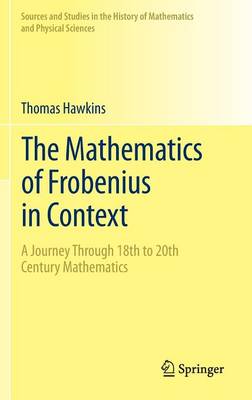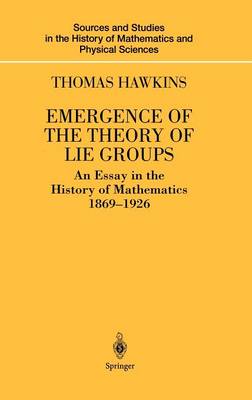Sources and Studies in the History of Mathematics and Physical Sciences
2 total works
Frobenius made many important contributions to mathematics in the
latter part of the 19th century. Hawkins here focuses on his work in
linear algebra and its relationship with the work of Burnside, Cartan,
and Molien, and its extension by Schur and Brauer. He also discusses
the Berlin school of mathematics and the guiding force of Weierstrass
in that school, as well as the fundamental work of d'Alembert,
Lagrange, and Laplace, and of Gauss, Eisenstein and Cayley that laid
the groundwork for Frobenius's work in linear algebra. The book
concludes with a discussion of Frobenius's contribution to the theory
of stochastic matrices.
latter part of the 19th century. Hawkins here focuses on his work in
linear algebra and its relationship with the work of Burnside, Cartan,
and Molien, and its extension by Schur and Brauer. He also discusses
the Berlin school of mathematics and the guiding force of Weierstrass
in that school, as well as the fundamental work of d'Alembert,
Lagrange, and Laplace, and of Gauss, Eisenstein and Cayley that laid
the groundwork for Frobenius's work in linear algebra. The book
concludes with a discussion of Frobenius's contribution to the theory
of stochastic matrices.
The great Norwegian mathematician Sophus Lie developed the general theory of transformations in the 1870s, and the first part of the book properly focuses on his work. In the second part the central figure is Wilhelm Killing, who developed structure and classification of semisimple Lie algebras. The third part focuses on the developments of the representation of Lie algebras, in particular the work of Elie Cartan. The book concludes with the work of Hermann Weyl and his contemporaries on the structure and representation of Lie groups which serves to bring together much of the earlier work into a coherent theory while at the same time opening up significant avenues for further work.

